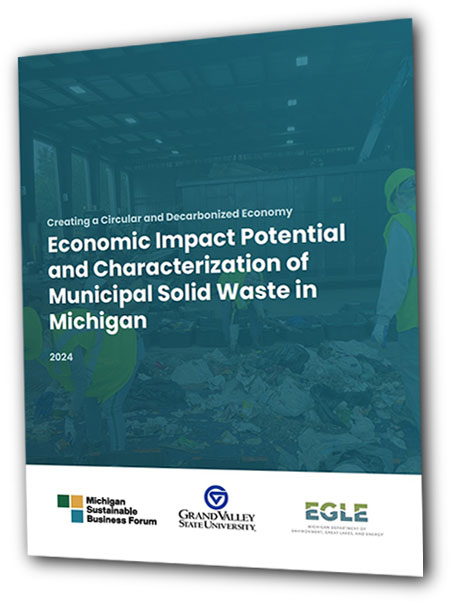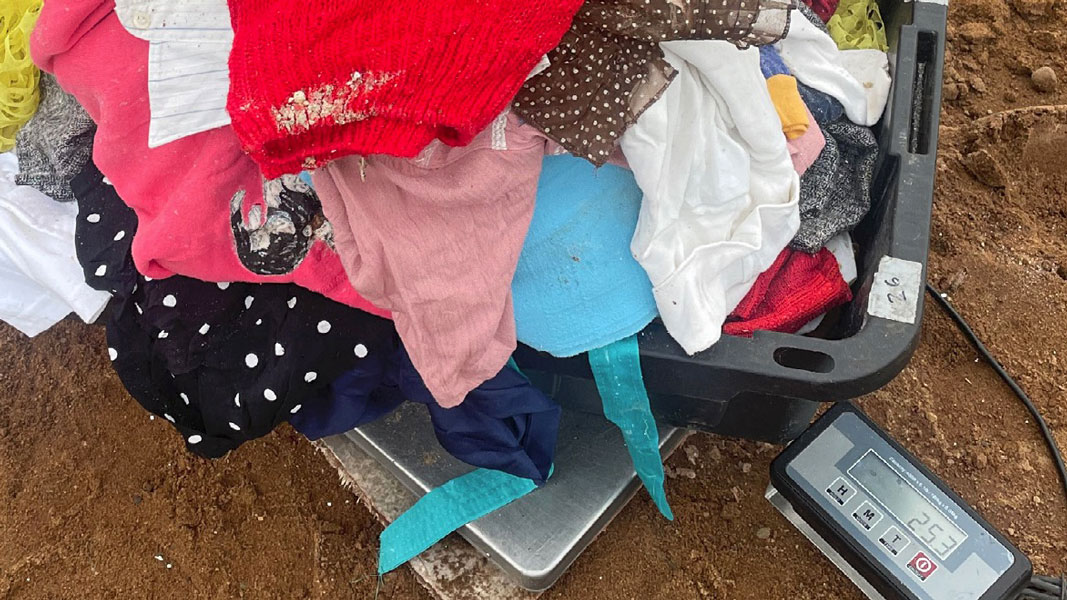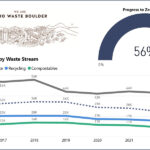Top: Waste sorts (textile sorted above) were done at 10 sites across the state of Michigan. Photo courtesy Michigan Sustainable Business Forum
 The 2024 Michigan Municipal Solid Waste (MSW) Characterization and Valuation Study conducted “statistically significant” waste sorts at 10 sites across the state (e.g., landfills, transfer stations and waste-to-energy facilities), enabling calculation of an economic valuation for diversion in terms of real material value, job creation, and other positive economic and environmental impacts. “We found that material disposed of in Michigan’s municipal solid waste each year has an estimated market value of $500 million to $676 million,” states a data analysis by Grand Valley State University and its collaborators. “If this material were collected for recycling, it would have an estimated economic impact of $609 million to $825 million per year, creating as many as 4,500 jobs.” Michigan disposes of an estimated 1.5 to 2 million tons/year of food waste through its MSW. “There is substantially more food waste in Michigan landfills than currently believed, and its contributions to greenhouse gas emissions are greater than previously known,” according to the study. “It was the most common material characterized at 19.16% of samples by weight. If this material was used as feedstock for compost in Michigan, it would be worth an estimated $18 million to $36 million annually. Food waste was found disproportionately in residential loads: 23.8% by weight, compared to 9.1% for samples from commercial properties.”
The 2024 Michigan Municipal Solid Waste (MSW) Characterization and Valuation Study conducted “statistically significant” waste sorts at 10 sites across the state (e.g., landfills, transfer stations and waste-to-energy facilities), enabling calculation of an economic valuation for diversion in terms of real material value, job creation, and other positive economic and environmental impacts. “We found that material disposed of in Michigan’s municipal solid waste each year has an estimated market value of $500 million to $676 million,” states a data analysis by Grand Valley State University and its collaborators. “If this material were collected for recycling, it would have an estimated economic impact of $609 million to $825 million per year, creating as many as 4,500 jobs.” Michigan disposes of an estimated 1.5 to 2 million tons/year of food waste through its MSW. “There is substantially more food waste in Michigan landfills than currently believed, and its contributions to greenhouse gas emissions are greater than previously known,” according to the study. “It was the most common material characterized at 19.16% of samples by weight. If this material was used as feedstock for compost in Michigan, it would be worth an estimated $18 million to $36 million annually. Food waste was found disproportionately in residential loads: 23.8% by weight, compared to 9.1% for samples from commercial properties.”













